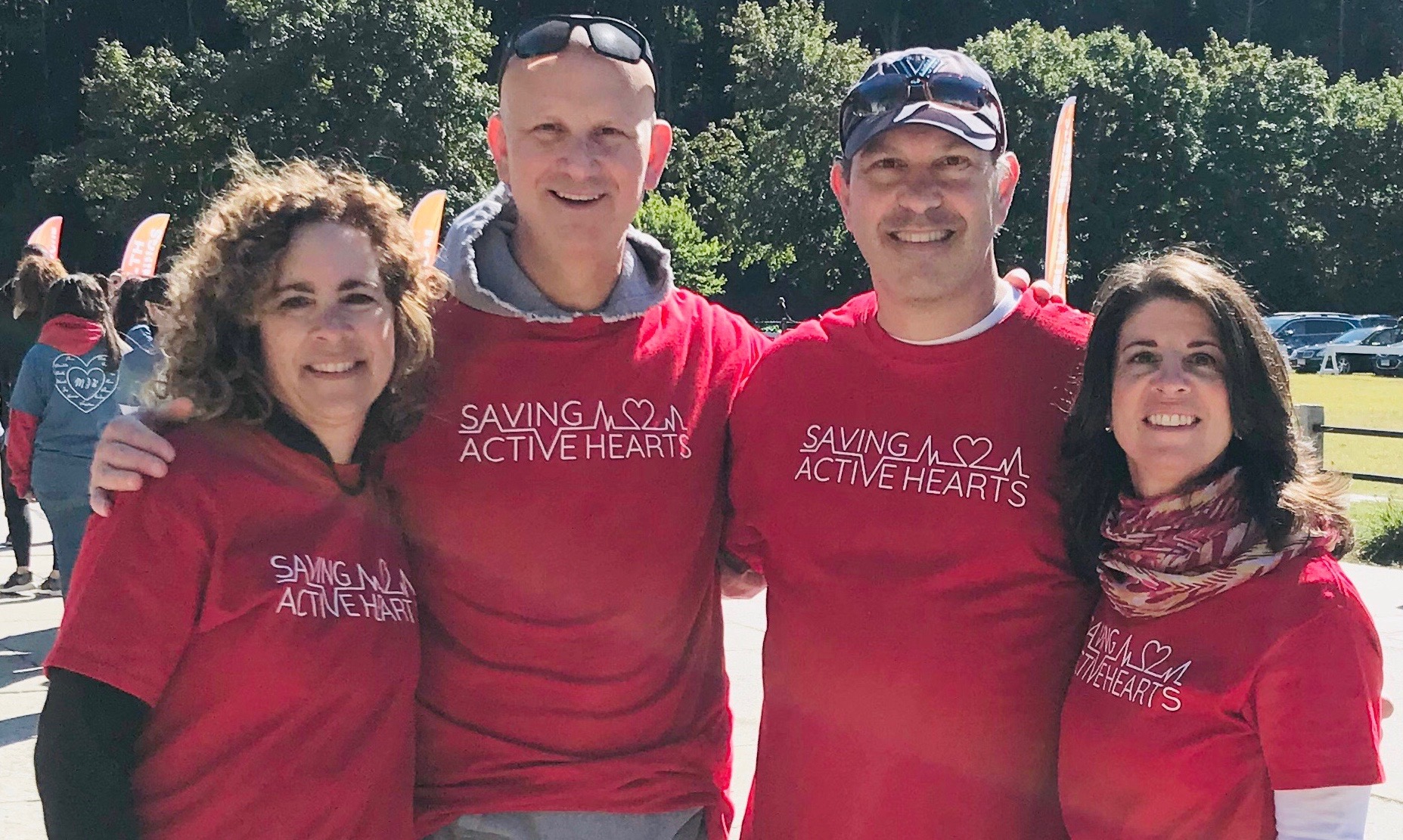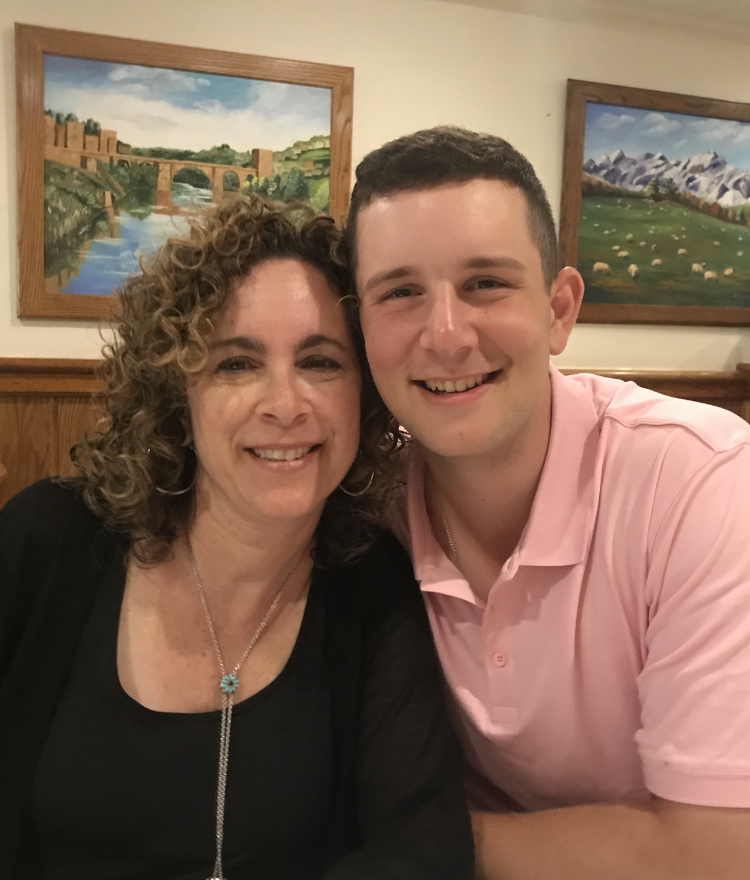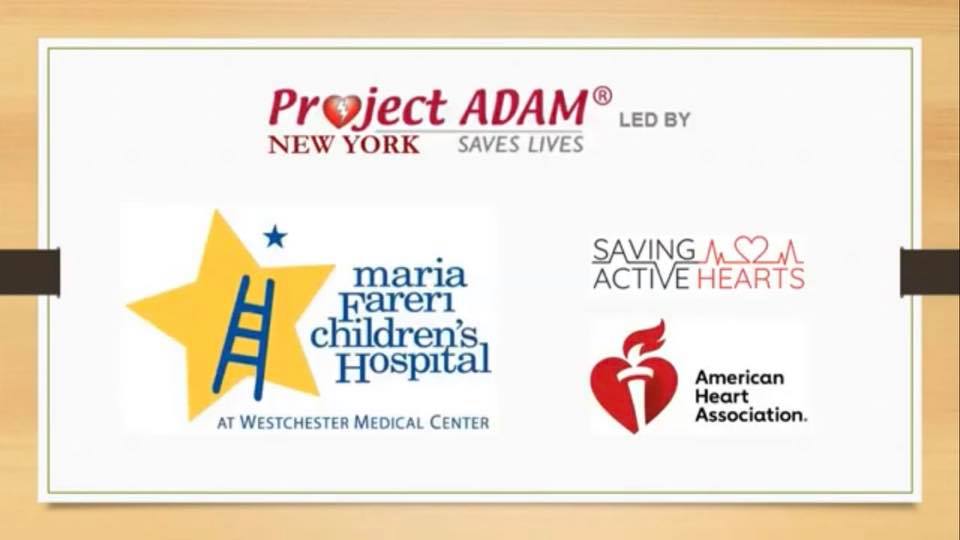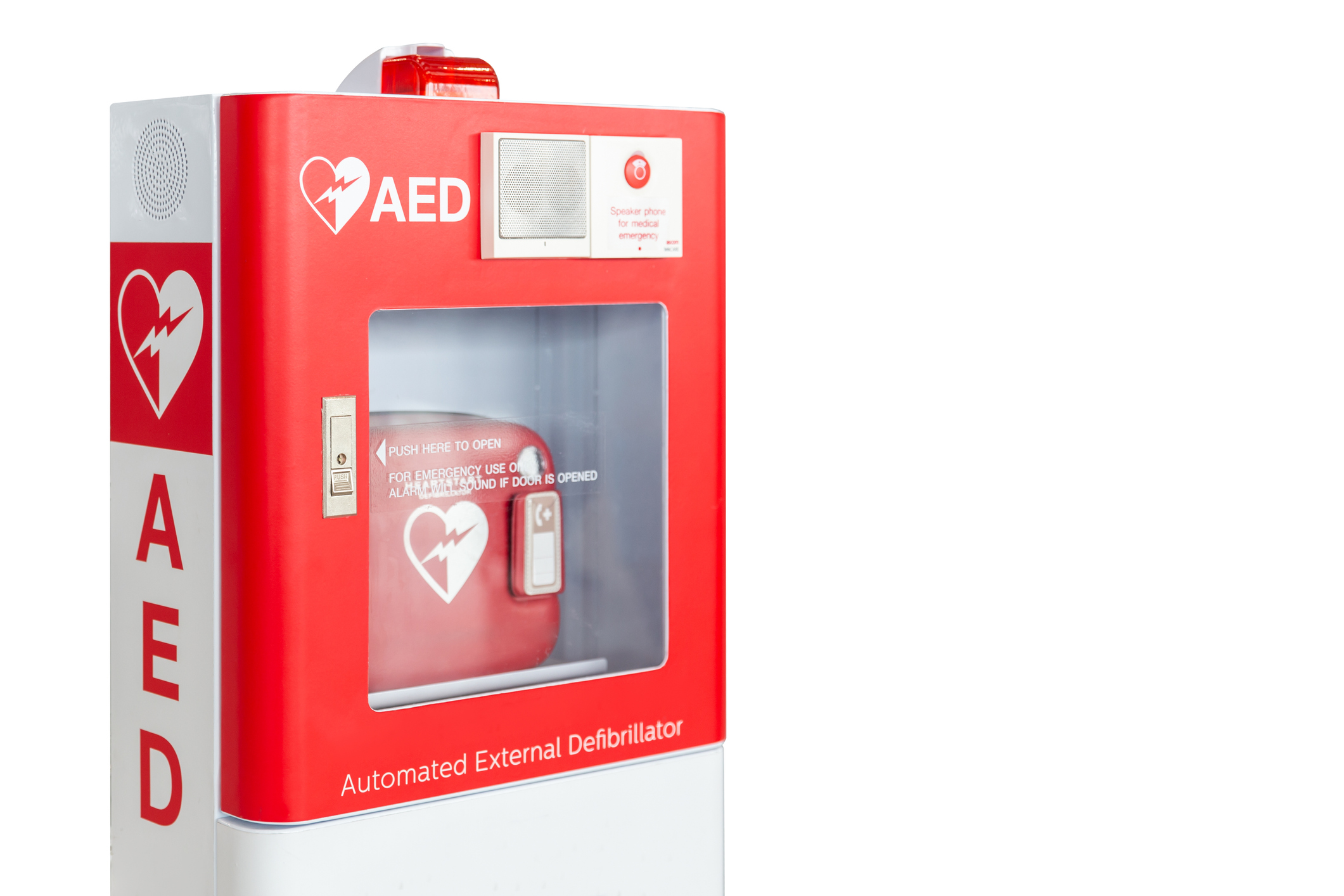Saving Hearts, Saving Lives
News Based on facts, either observed and verified directly by the reporter, or reported and verified from knowledgeable sources.
How two Westchester neighbors are leading the effort to prevent sudden cardiac deaths in local communities

Good morning! Today is Friday, March 4, and you are reading today’s section of Examiner+, a digital newsmagazine serving Westchester, Putnam, and the surrounding Hudson Valley.
Need to subscribe — or upgrade your Examiner+ subscription to enjoy full access to all of our premium digital content? Details here.

“I was at work and saw that I had missed a couple of calls from my husband. My first thought was that our son Jordan had broken another bone while he was playing basketball,” says Rye Brook resident Alice Schoen. “Then I read a text that said, ‘Drop everything and get to New Rochelle Hospital’.”
About an hour before Alice read that text in 2017, Jordan Schoen had scored a 2-point basket, then his 17-year-old athlete’s heart stopped beating. Jordan crumbled to the gym floor with a sudden cardiac arrest, or SCA.

Just four years earlier, Dave Colasante, another Rye Brook resident who was then 45, had an SCA while away during a father-son soccer game. When his wife Dana heard the news about Schoen, it brought back a flood of memories. “Even with what had happened to Dave, I was stunned to hear that this had occurred in someone who was so young,” she says.
Dave Colasante and Jordan Schoen were both saved by the quick thinking and actions of first responders who happened to be in their respective audiences.
Rapid treatment is vital for someone to survive an SCA. The victim’s heart usually needs a shock to restore its normal rhythm. That shock is delivered through an external device called an automated external defibrillator, AED, that gives the heart sort of a rhythm “reboot.”
For Colasante, an AED was found and retrieved from a nearby school, which fortunately was open on the weekend. In Jordan’s case, there was a defibrillator outside the gymnasium doors, but either the majority of those who were present didn’t know where it was or didn’t recognize the need to get it. Instead, an off-duty police officer who was among the spectators ran to his patrol car and got his device.
According to the American Heart Association, SCAs are the number-one cause of out-of-hospital deaths in the U.S. with more than 350,000 incidents each year, and it is the primary cause of death in student-athletes. About 7,000 SCAs occur in children under the age of 18.
An SCA is different than a heart attack, even though they both involve the heart, and both can be fatal. Simplistically, an SCA is an electrical or rhythm malfunction, while a heart attack arises from clogged circulation. (Think of your home’s electrical and plumbing systems.) The operative word with SCA is sudden ― the person suddenly loses consciousness and in about a quarter of the cases has had no prior symptoms.
TEAMING UP FOR ACTION
Dana Colasante quickly reached out to Alice Schoen to offer her support and they connected shortly afterward. They had been acquaintances for several years, but after they both came so close to losing a loved one to an SCA and at youth athletic events, they wanted to help others be better prepared.
In 2018, the two women co-founded Saving Active Hearts, a local initiative that is helping to raise awareness and implement a cardiac emergency response plan in Westchester communities and schools.
With input from Saving Active Hearts, the Village of Rye Brook implemented a comprehensive cardiac emergency response plan in 2018 that now touches multiple facets throughout the community.
“Alice initially came to us about the initiative, and we thought it was a great idea,” says Rye Brook Village Administrator Christopher Bradbury. “Anything we could do to improve the program that we had in place, we appreciated that opportunity. Our program has been vastly expanded.”
Bradbury, who has been the Village administrator for more than 20 years, says that since implementing the expanded program in 2018, the Village has trained the majority of its coaches and assistant coaches in CPR and the use of AEDs, with an ultimate goal of 100 percent. They have also created a laminated pre-game checklist that can be worn on lanyards and put on equipment bags; and expanded the number of AEDs and related signage in public buildings and parks.
In 2019, Savings Active Hearts joined forces with Project Adam®, a national organization with a synergistic mission, and formed Project Adam New York, which is an affiliate of Westchester’s Maria Fareri Children’s Hospital.

Project Adam is named after Adam Lemel, a Wisconsin teenager who died after having an SCA in 1999 while playing basketball. An AED was not available. Adam’s parents worked with the local Children’s Hospital to create the school program for education and intervention. In creating the program, his father Joe Lemel said, “I can’t help my son, but I can help yours.”
Dr. Christa Miliaresis is a pediatric cardiologist and the New York Program Director for Project ADAM. Her passion for this work is both personal and professional. She explains, “My mom died of an SCA when I was 14. It was horrible. She didn’t have any risk factors that you associate with an SCA. She was 50 and healthy.”
SECONDS COUNT TO SURVIVAL
The saying that “seconds count” in emergencies underscores the importance of preparation and rapid response to improve outcomes. In the U.S., only about 10 percent of people survive an SCA, but Miliaresis says that estimates are that with proper interventions, those survival numbers can triple.
“Our focus is on being prepared to react quickly,” says Colasante. “The ideal [scenario] is to get to the victim within three minutes.” In most locales, it takes at least twice that amount of time for EMS to get to the scene.
“It’s more than survival alone that is at stake, it’s also about preserving the quality of life,” Schoen explains. “We are so grateful that due to the rapid response, Jordan did not have any lasting neurological delays.”
Colasante noted that bystanders should not be afraid to begin CPR, retrieve, and use an AED when someone suddenly collapses and is unresponsive. The AED will talk you through steps to take while you follow the simple, detailed prompts it provides. (Watch this 3-minute video for more information on actions to take and how the AED operates.)

UP NEXT
The Project Adam New York team hopes to see more schools and communities adopt a systematic cardiac emergency response plan that includes training people and having the right equipment available ― and as a result, save more lives.
For instance, Schoen notes that it is mandatory for a percentage of camp counselors in the State to be trained in CPR, but that camps aren’t required to have an AED onsite.
Thanks to quick interventions, Dave Colasante continues to work and now enjoys watching soccer games and Jordan Schoen is now away at college, double majoring in economics and psychology.
Watch the video: Jordan’s story
Commenting on Rye Brook community’s response, Bradbury says, “The public reaction has been fantastic. It’s become such a great program. This [an SCA] is something that can happen at any event. We want to make sure that everyone’s protected as best we can.”
SIDEBAR: Some Key Take-Aways from the Project Adam New York Team
Don’t be afraid to ask questions before events like, “Who here knows CPR? Is there a defibrillator on-site and where it is?”
Everyone should learn hands-only CPR. Watch this 2-minute AHA video for more information.
Remember the mantra, CALL. PUSH. SHOCK. (Call 911, begin CPR, defibrillate if needed.)
Sherrie Dulworth is a lower Hudson Valley freelance writer whose stories range across healthcare, careers, literature, and human interest. She often finds tranquility with her nose in a book or her feet on a hiking trail, but not simultaneously.
We hope you’ve enjoyed today’s section of Examiner+. What did you think? We love honest feedback. Tell us: examinerplus@theexaminernews.com

Examiner Media – Keeping you informed with professionally-reported local news, features, and sports coverage.
